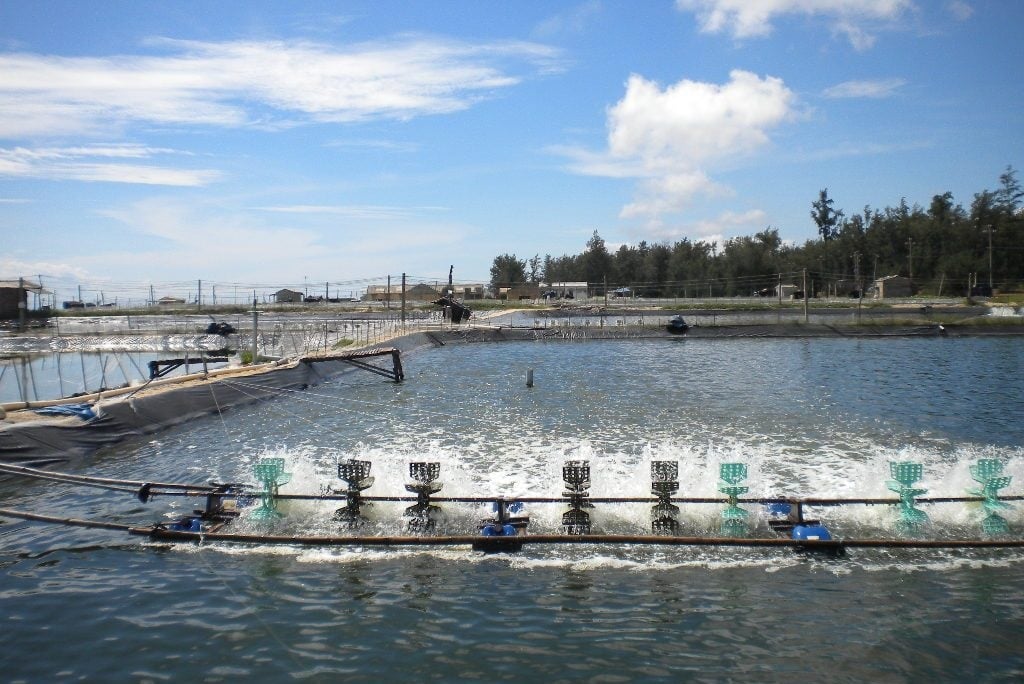November 27, 2025 | 22:25 GMT +7
November 27, 2025 | 22:25 GMT +7
Hotline: 0913.378.918
November 27, 2025 | 22:25 GMT +7
Hotline: 0913.378.918

The aim of the project is to control and prevent pollution in aquaculture.
The aim of the project is to control and prevent environment pollution in aquaculture; preventing and dealing with environment incidents; protecting and developing aquatic resources and habitat, thereby contributing to preventing biodiversity loss; enhancing adaptive capacity, reducing greenhouse gas emissions; building and developing the models of circular economy and green economy in fisheries industry towards environment protection and sustainable development of the fisheries sector.
The goal of the project is to ensure that the sources of pollution and wastes from aquaculture activities will be investigated, evaluated, managed and controlled by 2030; ending the use of toxic chemicals in aquaculture to prevent water pollution and biodiversity loss.
Additionally, natural aquatic resources for social-economic development will be studied, inventoried, assessed and developed; environmental problems in aquaculture activities will be handled and the capacity of the fisheries sector to prevent environment incidents will be strengthened.
Environment monitoring system serving the management of the fisheries sector including soil, water, sediment monitoring will be effectively deployed; key ecosystems for aquatic resources such as mangrove forests, sea-grass beds and coral reefs will be conserved and restored, contributing to preventing biodiversity loss. Besides, the project aims to develop and issue at least two action plans on conservation of aquatic species prioritized for protection; contributing to enhancing adaptive capacity and reducing greenhouse gas emissions; maintaining an annual growth rate of 8% in term of aquaculture farming area in accordance with sustainable and good aquaculture practices.
The models of circular economy and green economy in the seafood value chain will be studied, put into practice and scaled up.
To achieve the above goals, the Project also offers specific solutions including: increasing the stakeholders' awareness of environment protection in aquaculture activities; developing and applying sciences and technologies in aquaculture production and aquatic waste treatment; investing in infrastructure construction to ensure the treatment, collection, storage and transportation of waste from aquatic production.
At the same time, the focus will be put on developing mechanism and policies for promoting the exploitation, investment and restoration of aquatic resources; socializing the protection of aquatic environment and enhancing the enforcement of policies and laws on environment conservation in aquaculture activities.
Translated by Mai Tham

(VAN) On November 27, in the meeting with Minister Tran Duc Thang, Mayor Yin Yong shared Beijing’s experience to improve environment and air quality.

(VAN) After 30 years, both sides identified strategic areas of cooperation: sustainable production, increasing coffee value and training for farmers.
/2025/11/27/4910-4-164708_294.jpg)
(VAN) On the afternoon of November 27 in Beijing, Minister of Agriculture and Environment Tran Duc Thang held a working session with several major Chinese enterprises operating in the agriculture and environment sector.

(VAN) The Department of Animal Health issued a provisional guideline requesting local authorities to increase surveillance, collect samples for testing, and conduct epidemiological investigations according to the established procedure.

(VAN) The United Nations recommends that Vietnam utilize data and artificial intelligence to enhance early disaster warnings and reduce GDP losses by 3.2% in the context of climate change.

(VAN) On the morning of November 27 in Beijing, Minister Tran Duc Thang and the Deputy Commissioner General of the General Administration of Customs of China signed a protocol on fresh jackfruit exports.

(VAN) As floodwaters recede, a vast network of irrigation works across eastern Gia Lai is emerging in a state of severe disrepair, with extensive damage demanding urgent restoration ahead of the 2025-2026 winter-spring cropping season.